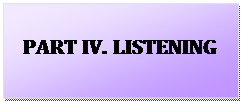 |
|
АкушерствоАнатомияАнестезиологияВакцинопрофилактикаВалеологияВетеринарияГигиенаЗаболеванияИммунологияКардиологияНеврологияНефрологияОнкологияОториноларингологияОфтальмологияПаразитологияПедиатрияПервая помощьПсихиатрияПульмонологияРеанимацияРевматологияСтоматологияТерапияТоксикологияТравматологияУрологияФармакологияФармацевтикаФизиотерапияФтизиатрияХирургияЭндокринологияЭпидемиология |
ACTIVE VOCABULARY OF THE TEXT
The human body is made up of several organ systems that all work together as a unit to make sure the body keeps functioning. There are ten major organ systems in the body, each of which plays a different role in helping the body work. The circulatory system is the body’s transport system. It is made up of a group of organs that is concerned with circulating blood to deliver oxygen and nutrients to every part of the body. The purpose of the digestive system is to turn the food you eat into something useful for the body, i.e. into protein, vitamins, minerals, carbohydrates and fats, which the body needs for energy, growth and repair. The endocrine system is made up of a collection of glands that regulates, coordinates, and controls a number of body functions by secreting chemicals into the bloodstream. These secretions help control moods, growth and development, and metabolism. The immune system is our body’s defense system against infections and diseases. Organs, tissues, cells, and cell products work together to respond to dangerous organisms (like viruses or bacteria) and substances that may enter the body from the environment. The muscular system is made up of muscle tissue that works with the skeletal system to control movements of the body. Muscles are bundles of cells and fibers that work in a simple way: they tighten up and relax. Muscles can be voluntary (like the ones in your arms and legs) and involuntary (like the ones in your stomach, heart, intestines and other organs). The skeletal system provides the shape and form for our bodies in addition to supporting and protecting our bodies, allowing bodily movement, producing blood cells, and storing minerals. The nervous system is the control center of the human body. It is made up of the brain, spinal cord, and nerves. It receives and interprets stimuli and transmits impulses to organs. Your brain uses the information it receives to coordinate all of your actions and reactions. The human reproductive system ensures that humans are able to reproduce and survive as a species. The primary function of the respiratory system is to supply the blood with oxygen in order for the blood to deliver oxygen to all parts of the body. The purpose of the urinary system is to filter out excess fluid and other substances from your bloodstream.
Summary: Out body is a complex structure that consists of 10 main systems that all work together as a unit to make sure the body keeps functioning. Exercise 11: Answer the following questions. 1. What are the major organ systems of our body? 2. What is carried by the blood stream? 3. What is the main function of the digestive system? 4. What does the nervous system consist of? 5. What are the functions of the skeletal and muscular systems? 6. How does the brain work? 7. What system is responsible for filtration of excess fluid from the body? Exercise 12: Examine the list of body systems below and name each system. Try to remember the organs within each system. Use the dictionary for the correct pronunciation of the words.
Exercise 13: Listen to the “Body Systems Rap” http://www.youtube.com/watch?v=CBLm7rK05Yc and fill in the missing information: Дата добавления: 2015-02-05 | Просмотры: 3120 | Нарушение авторских прав |


